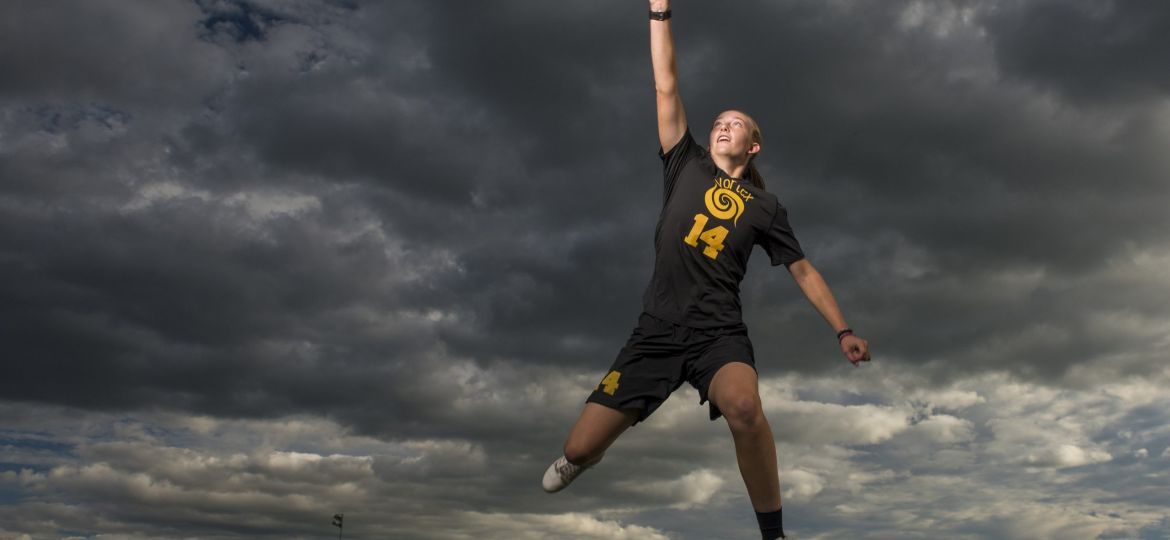
St. Olaf is home to 25 varsity teams that compete at the NCAA Division III level. Of these teams, some win lots of games, and others do not. What is inarguable, however, is that the most accomplished team of athletes on campus are not apart of a varsity group at all.
This team, which goes by the name Vortex, competes at the club level. Vortex, the women’s ultimate frisbee team on campus, won a national championship in
2018. They finished fourth at nationals in 2019. By all accounts, this makes them the most decorated athletes at the school, and yet few students on campus know of their successes.
Unlike the varsity teams, Vortex does not benefit from sufficient funding every year. Their
uniforms aren’t laundered, and they do not have access to their own field. The team does
everything they can to simply play the game. And play the game they do.
Practicing three times a week with workouts on off days, Vortex gets after it. Whether it’s
on the soccer field or behind Old Main on slanted grass, they work as hard as any team on
campus. After attending just one practice, it wasn’t difficult for me to see why this group has found so much success over the past few seasons.
For the most part, ultimate frisbee is a game that is played more than watched. You
won’t see it televised Sunday nights on ESPN or talked about by Stephan A. Smith on his
morning show. Even so, the game continues to grow at rapid rates in the United States,
becoming increasingly popular amongst high school and college-aged athletes.
Ultimate captures all the elementally rousing aspects of a great sport, being both
physically demanding and strategic. Vortex looks to channel the innate enjoyment of sports when recruiting, with more than half of their athletes having never competitively played ultimate before arriving on campus. With a team made up of athletes from miscellaneous sports, coaching and leadership become that much more important to the success of the program.
While athletic success at a liberal arts school like St. Olaf will never make the front page
of any major sports media, Vortex still finds themselves apart of a greater conversation that does. Among the most talked about storylines this year has been the fight for equal pay for female professional athletes. After the US Women’s National team won the World Cup last summer, the subject of a wage gap started to extend beyond the corporate world into the realm of sports. While women’s athletics often lack the representation in media they deserve, leading to lower revenues and subsequently lower salaries, efforts led by superstars like Megan Rapinoe and Serena Williams are making progress towards a fairer future.
Equality is not just fought for on the pitches of the world cup or courts of the US Open.
Progress is just as often rooted in small highschool gyms and college intramural fields like the ones Vortex call home.
“Sports are so empowering for both men and women. As captains we get to be role
models and empower so many people” said Kaitlyn Mulhern ’20, captain of the Vortex team.
“We work really hard. It shows female athletes who are coming into our program, you’re just as good as any male athlete on any team,” Haley Challgren ’21 said.
Vortex members may not receive the same levels of attention as their varsity
counterparts, but it’s clear they play for reasons beyond the acclamation of success. While empowerment and inclusivity remain top priorities within the organization, being a national powerhouse and the best team in the midwest certainly doesn’t hurt any goals they aim to achieve.

